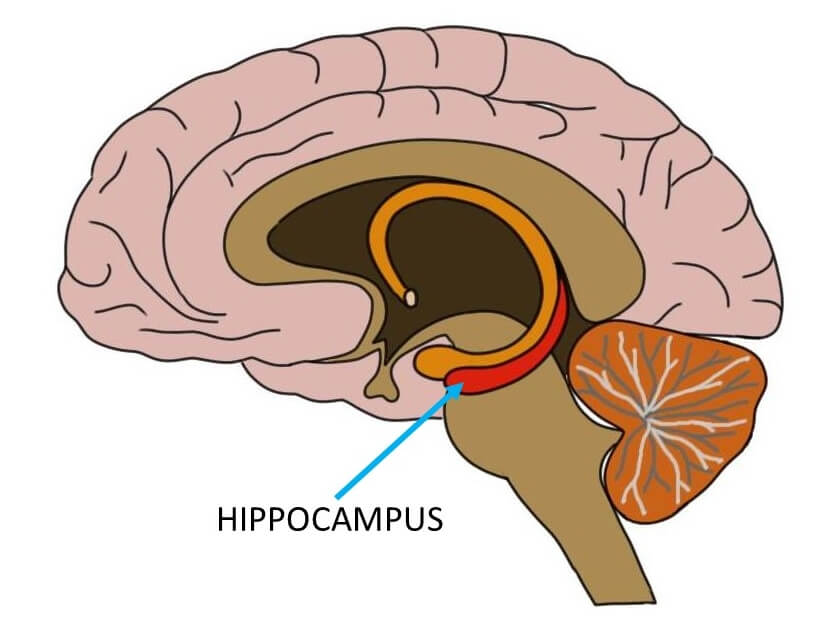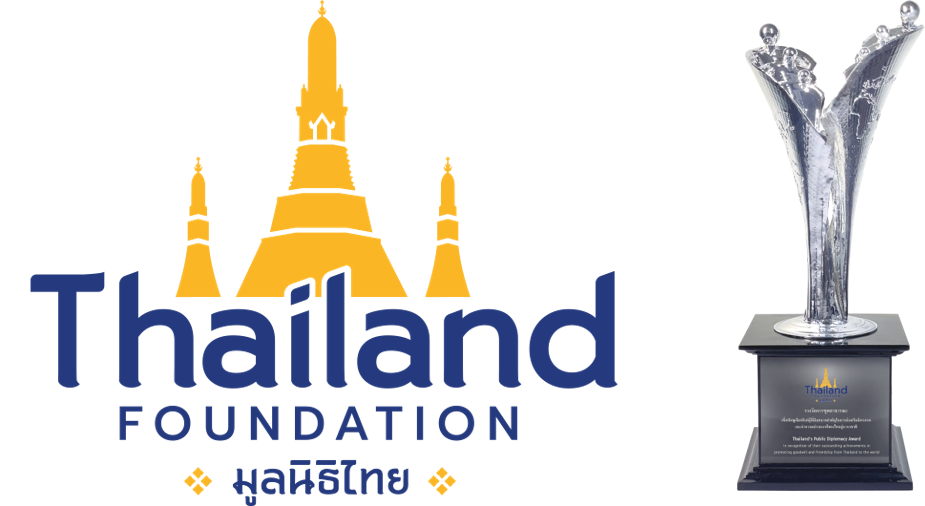The Buddha’s Advice on Happiness: What We Can Easily Do To be Happy Ourselves and How We Can Help Others Around Us Be Happy Too
Contents
Happiness may, in final analysis, be the ultimate objective in life.
What is happiness?
Oxford Learner’s Dictionaries defines happiness in two meanings, namely the state of feeling or showing pleasure, and the state of being satisfied that something is good or right.
Another word ‘happy’ is defined in Merriam-Webster Dictionary as, “(1) feeling pleasure and enjoyment because of your life, situation, etc., (2) showing or causing feelings of pleasure and enjoyment, and (3) pleased or glad about a particular situation, event, etc.”
Kendra Cherry describes the meaning of happiness in the article “What Is Happiness?” “Happiness is an emotional state characterized by feelings of joy, satisfaction, contentment, and fulfillment. While happiness has many different definitions, it is often described as involving positive emotions and life satisfaction.”

(Photo credit: https://bit.ly/3GNE3ht)
This refers to what one thinks about his or her life satisfaction, and refers to emotions, moods and feelings.
It is also clear from the definitions above that the most important word related to happy or happiness is “feeling – something that we feel through the senses or the mind”.
P.A. Payutto is of the opinion that, “Buddhism is a religion of happiness (Pali: Sukkha)”. He quoted the scriptures and said on page 957 of Buddhadhamma: The Law of Natures and Their Benefits to Life, that there are many kinds of happiness, such as:
The happiness of householders; happiness of laypeople & happiness of renunciants; happiness of the renunciant life.
Happiness of sensuality & happiness of renunciation; happiness resulting from a freedom from sensuality and an absence of greed.
Material happiness; happiness dependent on enticements and on consumable objects; carnal pleasure & non-material happiness; happiness independent of things to consume.
Physical pleasure & mental pleasure and so on.

Bhikkhu P.A. Payutto is franked by bhikkhu Jayasara on his right, and bhikkhu Siripanno on his left
(Photo credit: https://yhoo.it/3EAzZiu)
Even the highest goal of Buddhism – Nibbana – is described as a form of happiness, the supreme form of happiness (parama-sukha)
The Buddha taught that happiness needs to be cultivated – from lower levels of happiness to higher ones. Buddhism is a system of developing happiness, and development of happiness is given great emphasis in Buddhism. One can define the entirety of Buddhist practice as this cultivation of happiness.
In addition to the article “What Is Happiness?” by Kendra Cherry already mentioned, “What Is Happiness?” on Psychology Today, and Psychology of Happiness on Psychologist World may also be found useful to read together with this my article. I’ve found that the Buddha’s sayings on happiness go very well with the modern-day findings on psychology of happiness.
I would like to note that in this article, I’ll talk about the happiness dependent on material things or happiness of the ordinary people, that is, sense pleasure, or in other words, happiness through “feeling happy”. I won’t touch on non-material happiness, which in Buddhism refers to the happiness of the first three Jhanas, which is superior than material happiness. Neither do I write about happiness exceeding and transcending non-material happiness, which refers to the happiness and joy experienced by one whose mind is free from mental taints, who reflects on the mind liberated from greed, hatred and delusion. In Buddhism, this last happiness is the supreme or greatest one.
Where Can We Find Happiness or How Can We be happy?

(Photo credit: https://bit.ly/3bphcdx)
The Buddha pointed out that “There is no path to happiness: happiness is the path.” On this, P.A. Payutto cited the scriptures and said in his book Buddhadhamma: The Law of Natures and Their Benefits to Life, on chapter 11 which is entirely on Happiness that the Buddha discovered that generally ‘happiness can be reached by way of happiness’, which was contrary to the belief at the time of the Buddha that “happiness cannot be reached by way of happiness; it can only be reached by way of pain.” P.A. Payutto also mentioned that even the highest goal of Buddhism, of awakening (bodhi) or supreme happiness, is to be reached by way of happiness or through a practice consisted of happiness.
All people who are aware of this principle of supreme happiness have the opportunity to develop ourselves in order to realize it.
As we know, happiness is an emotional state characterized by feelings of joy, pleasure, satisfaction, contentment, and fulfillment.
The happiness originates in the mind or brain. However, external events can definitely influence or stimulate our emotions. Therefore, we need to train our mind or the brain – in such a way that it is the originator of happiness.
On this, the Buddha said a lot about the importance of the mind training in Dhammapada rendered into English by Allan R. Bomhard, including:
(But first – pause -, remember this frank word of the Buddha,) “All the effort must be made by you; the Tathagatas (Buddha) can only show the way”.
Then consider the Buddha’s advice on happiness:
“All mental phenomena have mind as their forerunner; they have mind as their chief; they are mind-made. If one speaks or acts with pure intentions, happiness will follow, like a shadow that never leaves one’s side. (On the contrary, …. If one speaks or acts with evil intentions, suffering will follow, just as the wheels of a cart follow the oxen that pull it along.”
“A disciplined mind brings happiness.” (Later in the article, the author will talk about the mind training – through Meditation, which plays a significant role in training – and even taming – the mind.)
“A lazy man will never find happiness.”
“A wise man, even when confronted with misery, never give up the hope to find happiness.”
“A person wishing for happiness should allay bereavement, pining, and distress; … he is free and discovers peace of mind. He passes beyond all grief, sorrowless and quenched.”
“Guard yourself against bodily misconduct; control your body. Give up evil deeds, and cultivate good deeds. Guard yourself against evil speech; control your tongue. Give up evil speech, and cultivate good speech. Guard yourself against evil thoughts; control your mind. Give up evil thoughts, and cultivate good thoughts. Those who are wise are disciplined in body, as well as in speech and in mind. They are well controlled indeed.”
Do not be happy or sad by mere praise or blame because “there is an old saying, it is not just of today: “People will blame you if you say too much; they will blame you if you say too little; they will blame you if you say just enough. No one escapes blame in this world. There never was, there never will be, nor is there now anyone who receives all praise or all blame.”
“Some give out of faith, others out of devotion. Do not envy others for the gifts they receive, or you will have no peace of mind by day or night. Those who have destroyed the roots of envy have peace of mind by day and night.”

(Photo credit: https://bit.ly/2Yc0ECO)
“Those who seek their own happiness by inflicting pain on others, being themselves entangled by the bonds of hatred, cannot be free from hatred.”

(Photo credit: https://bit.ly/3mpZ8pP)
“Conquer those who are angry through loving-kindness, those who are evil through goodness, those who are greedy through generosity, and those who tell lies through truthfulness.”
“As your family, friends, and well-wishers receive you with joy when you return home from a long journey, so will your good deeds receive you when you go from this life to the next, where they will be waiting for you with joy, like your kinsmen.”
Scientifically, Dr. Jill Seladi-Schulman said in the article, “What Part of the Brain Controls Emotions?” that scientists have agreed that these three parts of the brain in the limbic system play a crucial role in controlling and processing emotion. Hypothalamus controls emotional responses, sexual responses, hormone release, and regulating body temperature. Amygdala helps coordinate responses to things in your environment, especially those that trigger an emotional response. This structure plays an important role in fear and anger. And limbic cortex impact mood, motivation, and judgement.

(Photo credit: https://binged.it/3bypaRt)
In sum, to be happy ourselves, we need to take care of our mind or brain, which is the forerunner of all thoughts – the states of mind. We have to endeavor to preclude the arising of evil demeritorious (including negative, destructive, etc.) states that have not yet arisen; we endeavor to reject the evil…demeritorious states that have already arisen; we endeavor to cause the arising of meritorious (including positive, constructive, etc.) states that have not yet arisen; we endeavor to increase and to consciously reproduce the meritorious…states that have already arisen; and to develop them fully.
How Can We Help Others Around Us be Happy Too
In order for us – as an individual – to help other people – as far as the society as a whole – to be happy as well, P.A. Payutto quoted the Buddha as teaching that we first develop desire as a wish to act (Pali: kattukamyata-chanda or kusala chanda – wholesome desire). Kattukamyata-chanda is the desire to act, the wish to engage, the wish to create, the desire to improve, the desire to train, the desire to study, the desire to practice – good and useful things for ourselves and others.

(Photo credit: https://bit.ly/2ZCJv61)
The Buddha also advised on how to deal with desire – and even how to develop a good desire and suppress the bad one – that, first, we have to empower wholesome mental qualities such as a desire to act in order for something to reach a state of virtue or completion, and second, we replace negative mental qualities with positive ones. For example, Paul covets John’s money and wants to steal it, but he considers how difficult it was for John to acquire this money. John has enough problem; why create more for him? This thought gives rise to compassion, and the craving dries up and is stilled.
Then we act as dictated by the wholesome desire.
We have to train our mind to also “feel” happy at the time of working – irrespective of how hard the working condition is.
Meditation Practitioners are usually a happy person
The Buddha realized very well the importance of meditation or concentration (Pali: samadhi). He advised that “Do not run after sense pleasures and neglect the practice of meditation. If you forsake the practice of morality, concentration, and insight and get caught up in the pleasures of the world, you will come to envy those who put meditation first.

(The late Phra Ajahn Chah Supatto, the Thai master of teaching meditation with simplicity (Photo credit: https://bit.ly/3qcvd6M)
The Buddha’s advice is practically a theory, which should be accompanied or strengthen by practice – here meaning meditation – if we want to be happy. The two parts combined will definitely result in a desired outcome – happiness. The scientific research has also found that meditation increases activity in the left prefrontal cortex which is associated with happiness.
The buddha pointed out various benefits of meditation – especially mindfulness with breathing or mindfulness meditation. These profits included, “Long ago, my mind used to wander as it liked and do what it wanted. Now, I can control my mind, as a mahout controls an elephant with his goad.” and “Even I myself, before awakening, …, lived in mindfulness with breathing for the most part. When I meditated the body was not stressed, the eyes were not strained, and my mind was released from the asava (corruptions, cankers) through non-attachment.

(Photo credit: Quora)
P.A. Payutto mentioned a lot of benefits of meditation to mental health and to a healthy personality in Buddhadhamma: The Law of Natures and Their Benefits to Life, p. 1372 that concentration has positive effects on a person’s mind and disposition; it induces such qualities as inner strength, decisiveness, vigor, resilience, tranquility, cool-headedness, joy, loving-kindness, compassion, and wise discernment. Concentration precludes – and even eradicates – the negative states of mind such as thin-skinned, rude, irascible, aggressive, agitated, easily infatuated, hasty, intrusive, suspicious, lethargic, depressed, and indecisive. Moreover, concentration prepares the mind for the cultivation of good habits…. A person with concentration knows how to calm the mind and to both control and ease any mental suffering. One is able to keep one’s emotions in check and one has a strong mental immune system.
Modern-day scientific researches have found a lot of benefits of meditation. For example, Dr. Elena Antonova, senior lecturer in psychology at Brunel University London, said in the CNN clip titled, “What’s the science behind meditation?” that meditation is like a mental hygiene. Particularly, mindfulness meditation increases the volume in hippocampus part of the brain. And we should meditate consistently about 10 minutes a day.

(Photo credit: https://bit.ly/3CPKMoE)
Harvard Medical School’s website published the article, “In the journals: Mindfulness meditation practice changes the brain”, which mentioned various benefits of meditation, especially mindfulness meditation – for example, helping to reduce anxiety, stress, depression, chronic pain, psoriasis, headache, high blood pressure, and high cholesterol. It brings happiness to meditation practitioners.
Dr. Heidi Moawad said in her article, “How the Brain Processes Emotions” that the ‘happy’ feeling activates several areas of the brain, including the right frontal cortex, the precuneus, the left amygdala, and the left insula. This activity involves connections between awareness (frontal cortex and insula) and the “feeling center” (amygdala) of the brain. (Brain’s photo credit: https://bit.ly/3BKyXi4)
To learn how to meditate and practice it, you may visit the website of Thailand Foundation – https://www.thailandfoundation.or.th -, especially the topic ‘Meditation in Thailand’.
In sum, meditation can actually help rewire the brain and it strengthens connection between the prefrontal cortex and amygdala – an area of the brain that controls emotions. Because of this connection, the prefrontal cortex has the ability to moderate emotional responses. And I’d like to conclude this article with the Buddha’s quote, “Health is the greatest gift, contentment is the greatest wealth, the trustworthy are the best kinsmen, nibbana is the greatest happiness.”
Further reading and watching
- What Is Happiness? by Kendra Cherry, MS, at https://bit.ly/3CJ2uKt
- Meditation for happiness at https://bit.ly/3wlQdZW
- Why Meditation Can Actually Make You A Happier Person, According To Science at https://bit.ly/3BTsAsR
- 8 key factors behind the production of happiness hormones at https://bit.ly/3wlIsTK
- The Buddhist Way to Happiness by Yuval Noah Harari at https://bit.ly/3lZyVOx
********
The main source of this article is chapter 11: Happiness (pp. 818-961) of the book Buddhadhamma: The Law of Natures and Their Benefits to Life, written by P.A. Payutto and translated into English by Robin Moore; the author would like to thank both of them very much.
This article is an opinion of the writer who wishes to share with general readers his knowledge and experience in Buddhism and concerned scientific researches.
Author: Paitoon Songkaeo, Ph.D.


